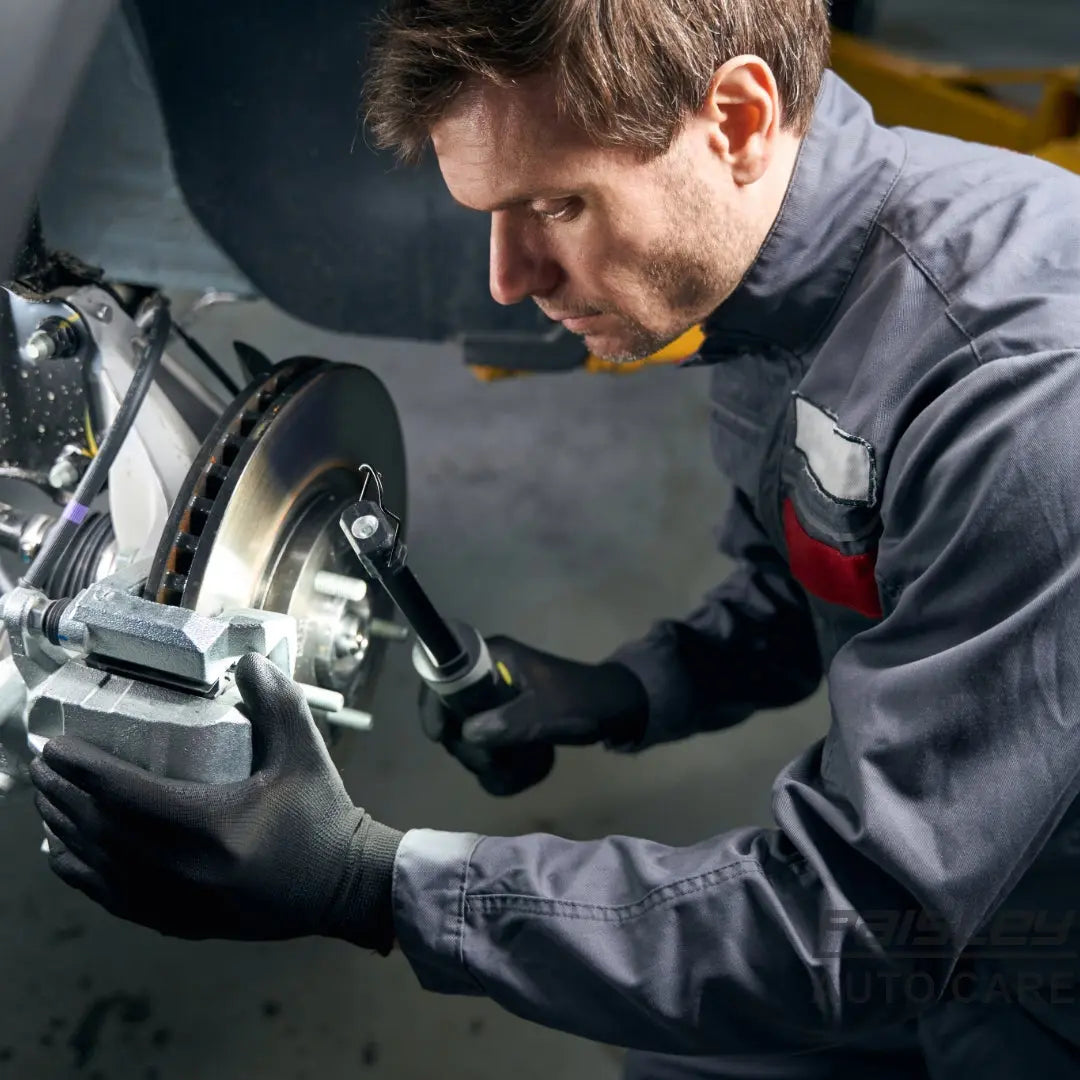Why Regular Brake Checks Are Essential
Brakes are one of the most critical safety components of any vehicle. Ensuring that they are in good working condition is not just about complying with legal requirements; it's about safeguarding your life and the lives of others on the road. This post explores the importance of regular brake checks, signs of brake wear, and how to maintain your braking system effectively. Understanding these aspects can help prevent accidents and costly repairs, making it a crucial topic for every vehicle owner.
The Role of Brakes in Vehicle Safety
The primary function of a vehicle's brakes is to slow down or stop the vehicle when necessary. This system comprises several components, including brake pads, rotors, calipers, and brake fluid. Each part must function correctly to ensure the vehicle stops safely and efficiently. Regular brake checks help identify any issues with these components before they become serious problems, ensuring that the vehicle remains safe to drive.
Common Signs of Brake Wear
Recognising the signs of brake wear is vital for maintaining your vehicle's safety. Here are some common indicators that your brakes may need attention:
- Squeaking or Squealing Noises: These noises are often the first sign that your brake pads are wearing thin. If left unchecked, the pads could wear down to the metal, causing damage to the rotors.
- Grinding Sounds: A grinding noise usually indicates that the brake pads are completely worn out, and the metal components are coming into contact. This situation can lead to costly repairs if not addressed promptly.
- Vibrations When Braking: If you feel vibrations in the brake pedal, it could indicate warped rotors. This issue often arises from excessive heat, which can warp the rotors and reduce braking efficiency.
- Longer Stopping Distances: If you notice that your vehicle takes longer to stop than usual, it could be a sign of worn brake pads or low brake fluid levels.
- Brake Warning Light: Modern vehicles are equipped with sensors that monitor the brake system. If the brake warning light on your dashboard illuminates, it's a clear sign that your brakes need immediate attention.
The Importance of Regular Brake Checks
Regular brake checks are crucial for several reasons:
-
Safety: The most obvious reason is safety. Faulty brakes can lead to accidents, especially in emergency situations where quick stopping is required. Regular checks ensure that your brakes are always in top condition, providing peace of mind on the road.
-
Cost Savings: While regular brake maintenance may seem like an added expense, it can save you money in the long run. Addressing minor issues before they escalate into major problems can prevent costly repairs. For instance, replacing brake pads is far cheaper than replacing the entire braking system due to neglect.
-
Compliance with Legal Requirements: In the UK, vehicles are required to undergo an MOT (Ministry of Transport) test annually. A significant part of this test involves checking the braking system. Regular brake checks ensure that your vehicle meets these legal requirements, preventing fines and penalties.
-
Prolonging Vehicle Life: Regular brake maintenance not only keeps your brakes in good condition but also extends the overall lifespan of your vehicle. A well-maintained braking system reduces wear and tear on other components, leading to fewer breakdowns and a longer-lasting vehicle.
How to Maintain Your Braking System
Maintaining your braking system involves several steps, from regular inspections to timely replacements. Here's a comprehensive guide:
-
Regular Inspections: Have your brakes inspected by a qualified technician at least once a year. During the inspection, the technician will check the thickness of the brake pads, the condition of the rotors, and the level of brake fluid. They will also look for any signs of leaks or damage.
-
Brake Fluid Maintenance: Brake fluid plays a crucial role in the braking system, transferring force from the brake pedal to the brake pads. Over time, brake fluid can become contaminated with moisture, reducing its effectiveness. It's recommended to replace the brake fluid every two years or as specified by the vehicle manufacturer.
-
Brake Pad Replacement: Brake pads wear out over time and need to be replaced regularly. The frequency of replacement depends on several factors, including driving habits, vehicle type, and the quality of the brake pads. On average, brake pads should be replaced every 20,000 to 60,000 miles.
-
Rotor Care: Rotors can become warped or damaged due to excessive heat or improper braking. If the rotors are damaged, they may need to be resurfaced or replaced. Regularly checking the rotors during brake inspections can help identify any issues early.
-
Listen and Feel: Pay attention to any unusual sounds or sensations when braking. Squeaking, grinding, or vibrations can all indicate potential issues. Address these problems promptly to prevent further damage.
-
Proper Use of Brakes: Avoid hard braking whenever possible, as it can lead to excessive wear on the brake pads and rotors. Use engine braking when going downhill, and always maintain a safe distance from the vehicle in front to avoid sudden stops.
Conclusion
In conclusion, regular brake checks are essential for ensuring the safety, efficiency, and longevity of your vehicle. By understanding the importance of brake maintenance and recognising the signs of wear, you can take proactive steps to keep your brakes in top condition. Whether it's through regular inspections, timely replacements, or proper use, maintaining your braking system is a crucial aspect of responsible vehicle ownership. So, make brake checks a priority and enjoy a safer, more reliable driving experience.




